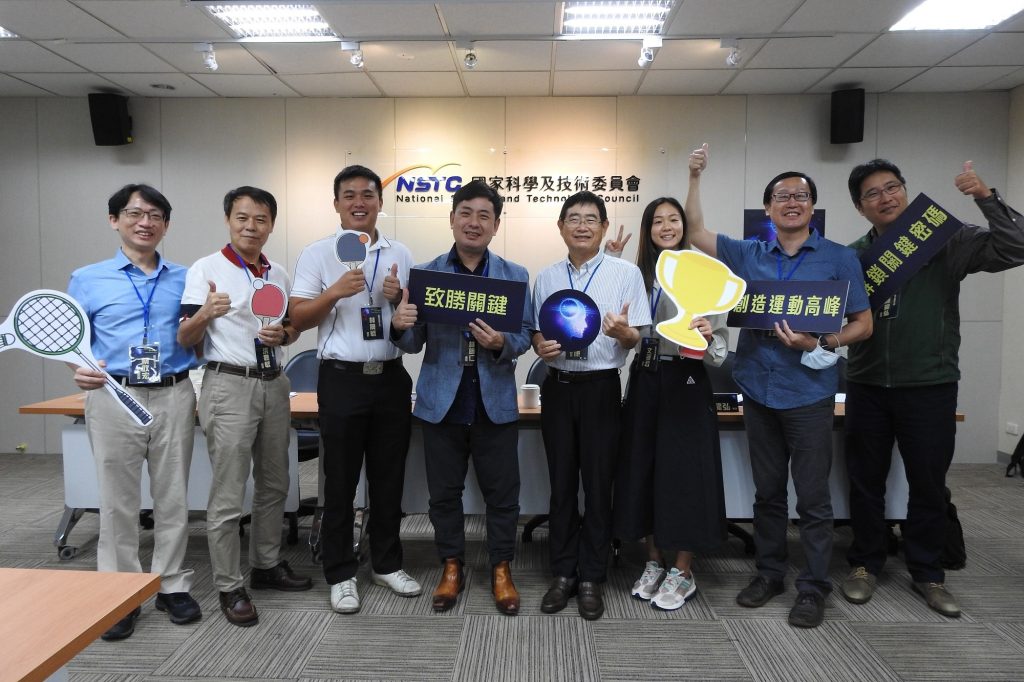ORIGINAL ARTICLE:本校公共事務中心 (2022.09.20)
(English Version Powered by ChatGPT, Edited by Serena H.)
In order to assist Taiwan’s elite athletes in continuing the success achieved at the 2020 Tokyo Olympics, Professor Chi, Li-Kang from the Department of Physical Education and Sport Sciences at National Taiwan Normal University formed a cross-university research team and discovered that when elite athletes are in a peak state, the body takes over while the mind retreats to the background, echoing the famous line from the movie Top Gun: “Don’t think, just do.”
Since 2021, the National Science and Technology Council has supported the “Key Codes of Peak State in Elite Athletes” project and, on September 19, invited members of the research team to present their findings, with 2020 Tokyo Olympic bronze medalist in karate Wen Tzu-Yun and professional golfer Lin Sheng-Yu sharing their experiences, discussing key factors that helped them break through performance plateaus and maintain peak form.
This project integrates five dimensions: sports psychology, neuroscience, team dynamics, sociocultural aspects, and philosophy, to analyze athletes’ mental states from various temporal perspectives and interpersonal interactions, and how these affect their performance.
Research findings indicate that the key factors for maintaining peak performance include: thorough preparation, support from key figures (e.g., coaches), warm-up and physical readiness, nutrition, and comprehensive pre-competition planning.
According to the analysis, Taiwanese Olympic athletes in peak states typically exhibit the following traits: high self-confidence, calm composure, focus and engagement, enjoyment of competition, good physical condition, and full utilization of skills and tactics.
In addition, the team analyzed the brainwaves and heart rate of professional golfers, and found that before a successful putt, golfers relied on a subconscious brain control mode, with few conscious thoughts — just the mindset of “Let it happen!” was enough to enter an optimal state.
On the other hand, the project also found that elite athletes’ career development and cultivation of daily routines play a crucial role in achieving peak performance. Also, emotional support can help athletes transition from suboptimal to peak states.
Research: In Peak State, the Mind Steps Back and the Body Takes Over
Professor Hung Tsung-Min of NTNU’s Department of Physical Education and Sport Sciences pointed out that athletes, such as professional golfers, are more often defeated by their inner demons than by opponents. His research found that if athletes can suppress distracting thoughts like “overthinking” or “wanting it too much,”they can enter the mental state needed to sink a putt.
Dr. Tsai Cheng-Hung of Academia Sinica’s Institute of European and American Studies added that just like the iconic line from Top Gun: Maverick, “Don’t think, just do,”elite athletes in peak condition allow their mind to retreat while the body takes over, minimizing mental interference with action.
Wen Tzu-Yun shared that, during peak states, she enters a realm of “selfhood,” allowing herself to achieve a “do as I will” state, maintaining composure, staying focused, enjoying the match, and keeping her confidence. These abilities are built through consistent training.
Wen noted that sometimes during a match, a move may not go well, and if she keeps dwelling on it, she would not perform well in the next phase. So she tells herself “Don’t think, just do,” to let the mind step back and return to calmness.
Lin Sheng-Yu admitted that “physical training is easy, mental training is hard.” He believes that when performing well, his mind is unaffected by external factors, and maintaining a “don’t overthink” mindset helps sustain performance. Thus, long-term training and mental control practice are essential.
The project’s results will be practically applied to help Taiwan’s elite athletes shine on the competitive stage and stay in top condition. Meanwhile, the National Science and Technology Council is advancing the “Sports Technology Application and Industry Development Project” through interagency collaboration, using mental state analysis and applied scientific techniques to enhance training efficiency, supporting elite athletes in achieving their peak, and promoting cross-disciplinary, cross-industry, and cross-ministerial collaboration, to apply research outputs to competitive sports and academia, laying the groundwork for emerging technologies and advancing the sports industry.
合影左起為中央研究所歐美研究所蔡政宏研究員、國立臺灣師範大學體育與運動科學系洪聰敏教授、林晟毓運動員、國科會人文處林明仁處長、國立臺灣師範大學體育與運動科學系季力康教授、文姿云運動員、中央研究院中國文哲研究所李育霖研究員及國立體育大學國際運動管理與創新博士學位學程陳龍弘教授
